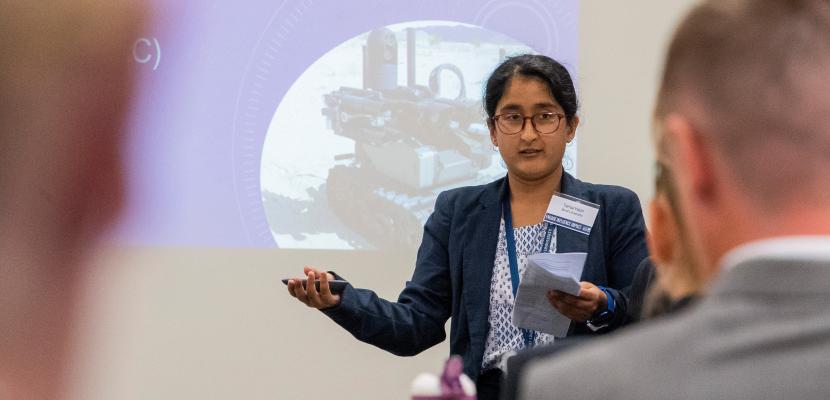
It sounds like something taken straight from the script of a science fiction movie, but it was one of the searching questions raised during Legal Research at the Frontiers, a Faculty of Law event which helped launch Bond Research Week on Monday.
The 11 presentations at the event highlighted research spanning topics including internet jurisdiction, how social licenses are beginning to intrude into Australia’s trade and investment, and comparing approaches to discrimination law.
Tarisa Yasin, who started at Bond in September 2014 as a Bachelor of Laws and International Relations student, before graduating in February 2018, spoke on autonomous weapons systems and the future of armed conflict.
“The use of autonomous weapons systems in armed conflict is an area that is not sufficiently addressed or covered by treaty law, there are principles and rules that are used as guidance, but there is no treaty or protocol that neatly outlines the principles and rules governing the development and use of autonomous weapons systems.
“The fact that most weapons systems are currently not programmed to implement these rules, it makes human discretion and intervention still relevant when applying the law of armed conflict to military operation. The main concern is to ensure human control is maintained over these weapons systems, especially over the use of lethal force, there is an ethical issue or conundrum in relation to should we give the right to kill, should we let robots kill humans?”
Professor Nick James, Executive Dean of the Faculty of Law at Bond, discussed employment options for law graduates and the tendency for these options to be perceived as a simple duality – “succeeding” at law school by being hired by a large law firm, or settling for an alternative position.
“What I’m interested in is understanding the apparently widespread view that law school success equates to a job with a large law firm, in the face of a rapidly-changing legal services sector and the emergence of so many other rewarding career options.”
This worldview could be challenged through universities revising how they set up careers guides, workshops and employer presentations, and strategies around how they set their curricula and assessment, designed their marketing materials and created spaces for competing discourses.
Professor Vai lo Lo spoke on the protection of the elderly at a time where the world is facing a rapidly ageing population.
The presentations were complemented by a poster display of seven peer-reviewed academic journals, administered by the Faculty of Law.

